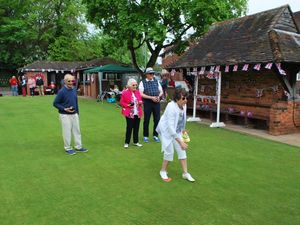More than 100 new police officers set to join Staffordshire’s police force in coming year
More than 100 new police officers are set to join Staffordshire’s force in the coming year – and recent recruits include more women and people from ethnic minority backgrounds.
By March 2023 Staffordshire Police is expected to have 1,942 officers – up from 1,567 in March 2019.
A report to the latest police performance meeting revealed that the force had been allocated 300 new officer places as part of the national 20,000 increase, with 90 earmarked for the current financial year and another 120 for 2022/23.
It added: “The time to train new student officers is three years under the Police Constable Degree Apprenticeship (PCDA) and two years under the Degree Holder Entry Programme (DHEP).
“During the training period, student officers should achieve independent patrol status at 40 weeks and therefore be deployable as an independent resource; prior to the 40 weeks, they will be partnered with a tutor constable.”
Staffordshire’s Police, Fire and Crime Commissioner Ben Adams, speaking at the police performance meeting, said: “What I’m very conscious the public are keen to see progressing is the number officers at your disposal here in Staffordshire.
“As I understand, 300 extra will be here by March 2023, plus another 76 that were funded by council tax contributions as a result of my predecessor acting before the uplift.
“Because policing is different from what it was even a few years ago we aren’t going to see al 375 officers patrolling the streets – crime is in different places. We’ve talked about it being online and in relationships in private homes, so there is a range of skills needed.
“I had a bit of concern that the approach – particularly looking to achieve degree outcome – might put some people off but I’ve not seen that. I’ve seen a real breadth of experience and individuals coming in of all ages. I think the mix of ‘on the job’ and college or university-based learning is good.
“It’s not so much about needing a degree to come in, it’s a recognition that the training they do is to degree level. That’s two or three really hard work years for some people. Their ambition is to join the police force and we don’t want to put them off through the process.
“It’s an increase of nearly 20 per cent so it’s a significant amount of extra officers. Is it all going well and is that going to happen?
Chief Constable Chris Noble responded: “Yes and yes. Clearly policing is still about numbers and it gives us the opportunity to get more local. It also gives us an opportunity to invest in specialist areas.
“We’ve talked about roads policing and some of the challenges around cybercrime and investigating those cases that involve some of the most vulnerable people.
“As a new officer coming in now I think it’s probably the hardest time that I’ve known in policing. They’re coming in at relatively low wage, they’ve got responsibilities not just to learn a new craft, work night shift and deal with traumatic events, but they’ve also got a professional qualification to achieve as well, which means even though the numbers are coming into policing it can take a while for them to be fully capable and fully deployable.
“It’s an excellent opportunity for policing and numbers really matter but there are some challenges about getting them onto the front line of policing.
“The other really positive story is about representation and having a more diverse workforce, which we know for lots of reasons around community confidence and effectiveness is really important. I think Staffordshire is leading the way around some of those numbers coming into policing.”
Deputy Chief Constable Emma Barnett said: “We’ve seen more women joining policing through our entry routes and our average now is 50/50 on the intakes, which is a much improved position.
“We’ve also seen some positive steps in new officers from black and ethnic minority communities as well. The Staffordshire population is 5.9 per cent, our recruitment representation is at 5.3 pe cent and it’s continuing to improve.
“We have a number of different entry routes in and we were one of the first forces to do the DC DHEP route, which is you’re a degree holder and you’re joining the programme with a view to becoming a detective constable. We’ve seen improved diversity in that intake as a result.”




